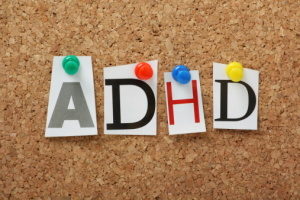Wisdom for Parents from CHADD Conferences

Article continues below...
Treatment for your Child's ADHD
Download a free tip sheet "Recommended Treatment for ADHD: Medication & Behavior Management" for what's really recommended for your child or teen.
Back From CHADD
We've always had amazing experiences at CHADD's (Children and Adults with ADHD) annual conference, and we want to share our biggest “aha's" with you!
It's hard not to be jazzed by the experience. Over the years it's become a kind of reunion for us, because we met each other at CHADD in 2010, and we launched ImpactADHD's website as an Innovative Program in 2011!
While we usually talk with parents throughout most of the conference, we always find our way into some sessions and keynote speeches! And as is always the case, there was a lesson to learn from every session we attend!
So we decided to use this week's Guest Expert article to share a few tidbits of what we have learned from MANY experts over the years – at the CHADD conference, and beyond. Some of these tips may not be new to you, but we're confident they'll be useful.
Messages for Managing ADHD
-
- You can't start treating ADHD until you recognize that it's real. Acknowledging it – and accepting it – sets you on the road to management. When you stop blaming yourself, or your child, you can take major steps towards improvement.
-
- After acknowledging ADHD, it's time to get informed! Information is a powerful antidote to self-blame. With better understanding, you can begin to take steps that really help in management.
-
- While the most common recommendation for managing ADHD is medication, in one form or another nearly every professional we encountered recommended coaching. For individuals. For families. For parents. When asked the best way to balance “creativity” with the “need for structure,” Dr. Ned Hallowell responded: “Get A Coach.”
-
- A strength-based approach to managing ADHD, coupled with a belief in possibility of success, is incredibly powerful. Without intervention or effective treatment, ADHD can devastate lives. With hope and a focus on talents, people with ADHD achieve extraordinary success.
-
- The identification and treatment of ADHD relies on a combination of scientific analysis and informed observation. ADHD is not a one-size-fits-all kind of diagnosis, and treatment protocols are equally as diverse, depending on the individual.
-
- Success depends on the use of structures. Hallowell says, “Team up with someone with structure and yield to it.” But the structures must match an individual's abilities, and be implemented in the context of positivity and realistic expectations.
-
- In addition to coaching, mindfulness is another non-medication-based approach that can be really effective in managing ADHD. Simply placing attention on what's most important can shift your approach to all kinds of complications like less stress and increased awareness. For parents, mindfulness encourages you to choose priorities – is a clean room more important than academic success?
-
- People “medicate” or “manage” their ADHD in a number of ways outside of prescription medication. Some of them can be very positive strategies (sleep, brain-training, exercise, meditation, nutrition, & food management), and some not necessarily healthy (caffeine, illegal drugs, alcohol, hypersexuality, thrill-seeking/risk-taking behaviors, anger, procrastination). Recognition of how we are “self-medicating” – for better and worse – can lead us to more conscious management. For example, anger can be something that people with ADHD use to help them focus. Depending on time and location, it can be helpful, or particularly irritating!
-
- Sleep. It's so important. You can't underestimate its role in complicating ADHD, or helping to manage it better.
-
- Medication alone is generally not a sufficient treatment for ADHD. Accompanying treatments like coaching, therapy, organizational management, mindfulness and others are critical to success over a lifetime!
-
- Executive function deficits do not necessarily respond directly to medication, and they are at the core of the challenges people with ADHD face every day.
-
- Co-existing conditions, like anxiety or learning disabilities, add to an individual's frustration, and it's important to manage each diagnosis, not just treat each one separately. People with ADHD may have to work harder than their peers in some aspects of life, especially in school. Acceptance of that reality can help parents find more compassion, and kids find more determination.
-
- Mastering motivation is key to accomplishing any task for an individual with ADHD. Motivation doesn't come naturally, necessarily – it needs to be consciously identified.
-
- ADHD symptoms are contextual. Dr. Tom Brown explains that an individual's ability to perform any given task will depend on the circumstances. If someone is distracted by intense emotions or loud noises, for example, she may not be able to concentrate, even if she could do the same task perfectly at another time.

